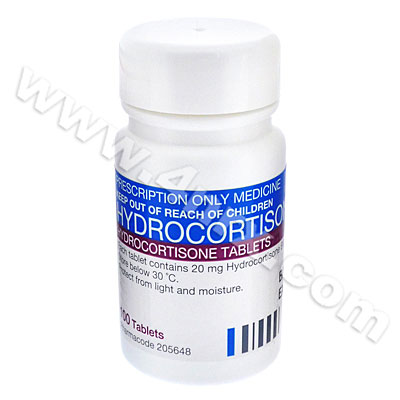 |
Home  Skin Skin  Hydrocortisone (Hydrocortisone) Hydrocortisone (Hydrocortisone) |
|
|||||||||
|
Hydrocortisone (Hydrocortisone)
What is Hydrocortisone (Hydrocortisone) used for? Hydrocortisone (Hydrocortisone) is a type of corticosteroid that is quite similar to a natural hormone which is produced by the body's adrenal gland. Patients suffering from diseases which cause low levels of hydrocortisone in the body, for example Addison's disease or adrenocortical insufficiency may be given this as a treatment. It may also be given as a treatment for various conditions, such as arthritis, breathing problems, ulcerative colitis, asthma, severe allergies, thyroid disorders and other conditions, as it is effective in reducing inflammation, as well as helping to keep blood pressure normal. How should I use Hydrocortisone (Hydrocortisone)? Hydrocortisone (Hydrocortisone) tablets should be swallowed whole with a glass of water. The dosage required varies for each patient, and your physician will tell you the correct dosage. You may be told to take it 1 to 4 times per day. Only take the amount that your physician has prescribed for you. Do not suddenly stop taking this drug, as doing so may cause withdrawal symptoms. Consult your physician, as your dose may need to be gradually decreased. What are the side effects of Hydrocortisone (Hydrocortisone)? Some side effects of Hydrocortisone (Hydrocortisone) include:
If you are taking this medication, you should immediately inform your physician if you experience any side effects. Please Note Strictly follow all instructions provided to you by your physician or pharmacist while using Hydrocortisone (Hydrocortisone). Optimum and safe dosage can differ based on the patient and the condition being treated. As this medication may be unsafe for certain patients, it is essential you always inform your physician if you are pregnant or breastfeeding, as well as if you have any allergies, other illnesses, or ongoing health conditions, and if you are taking any other form of medication, supplements, or herbal products. Immediately seek emergency medical care if you have any allergic or hypersensitive reaction. Common signs of a reaction include hives, swelling, skin rashes, chest pains, as well as trouble breathing or swallowing. 
|
|||||||||||||||||